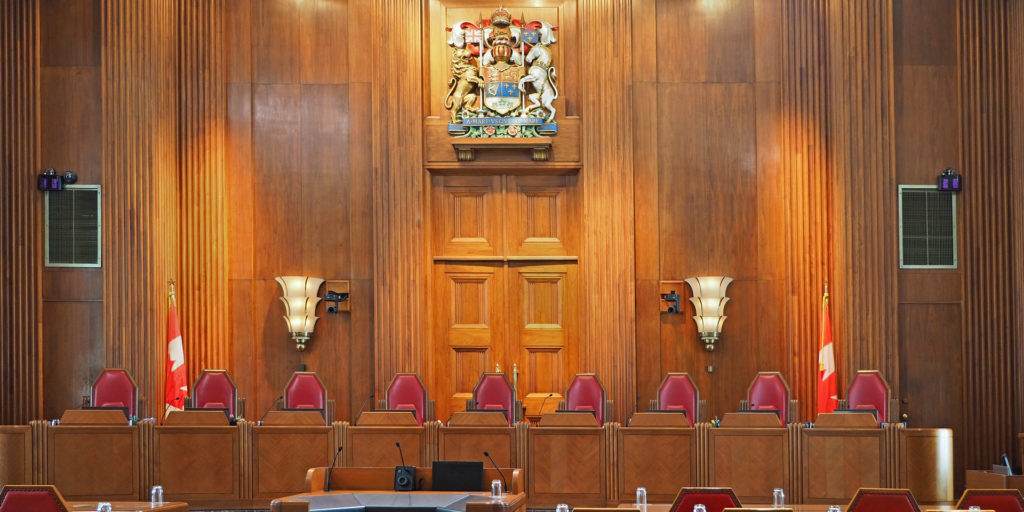- Firms do not have ‘sole discretion’ to terminate employment contracts - July 26, 2024
- Proposals to update the Workers Act offer minor victories - December 6, 2023
- No right to lay off employees without compensation, court affirms - July 19, 2023
The impact of a ground-breaking Supreme Court of Canada (SCC) decision concerning an employee’s right to damages after termination was recently shown when that court remanded two appeals to provincial courts for reconsideration.
In Matthews v. Ocean Nutrition Canada Ltd., the nation’s highest court clearly articulated that language in employment contracts limiting severance payments cannot easily be used by employers to reduce their liability when terminating an employee. As I discussed in a November blog post, Matthews, a manager with 15 years’ experience, had signed a long-term incentive plan (LTIP) designed to reward employees for previous contributions. Under the LTIP, a “realization event” would trigger payments to employees who qualified under the plan.
That “realization event” occurred when the firm was sold. However, that was about a year after he had left Ocean Nutrition in what the court determined was a constructive dismissal.
Matthews claimed nearly $1.1 million under the LTIP, arguing the company’s sale fell within the 15-month notice period he was awarded, so he was entitled to be treated as an employee under the LTIP.
The trial judge sided with him, but the provincial appeal court did not, overturning the lower court decision.
Common law rights are important
The SCC resolved the issue by relying on orthodox wrongful dismissal damages principles. Citing a 2016 Ontario appeal court decision in Paquette v. TeraGo Networks Inc., the SCC judgment states that “courts should ‘consider the [employee’s] common law rights’ … that is, courts should examine whether, but for the termination, the employee would have been entitled to the bonus during the reasonable notice period. Second, courts should ‘determine whether there is something in the bonus plan that would specifically remove the [employee’s] common law entitlement … The question … is not whether the contract or plan is ambiguous, but whether the wording of the plan unambiguously alters or removes the [employee’s] common law rights.”
Going forward, I believe courts should always use the “Paquette two-step” to determine if damages are due in wrongful dismissals.
Which brings us to the two cases whose leave to appeal was denied by the Supreme Court to allow reconsideration at provincial appeals courts.
In Manastersky v. Royal Bank of Canada, a man was employed by the Royal Bank of Canada for almost 14 years when his employment was terminated without cause. He sued for damages for wrongful dismissal. The trial judge found that he was entitled to 18 months’ notice upon termination. The bank appealed the judge’s decision to award him more than $1.3 million to compensate him for “the lost opportunity to earn entitlements” under the firm’s profit-sharing plan during that notice period.
Court of appeal ruling
The Ontario Court of Appeal set aside a large portion of that award, concluding that the terms of the profit-sharing plan clearly state that plan membership ends upon an earlier date of termination: “I do not see how RBC’s termination of the [Plan] in accordance with its terms, which were known and agreed to by Mr. Manastersky, could amount to conduct by an employer that evinces an intention to no longer be bound by the employment contract,” the judgment states.
- Many workers will emerge from the lockdown in a better position
- Workers still have rights when facing layoffs or pay cuts due to COVID-19
- $2.5M class-action settlement gives private school teachers their due
In a second case, Mikelsteins v. Morrison Hershfield Limited, the appeal court dealt with the question of whether an employee who had been terminated was entitled to an increase in the value of shares and a share bonus throughout the period of notice.
The trial court ruled in the employee’s favour, but the appeal court disagreed, ruling that the “motion judge erred in … improperly conflating [his] entitlement to compensation arising from the breach of his contract of employment with Mr. Mikelsteins’ contractual entitlements respecting his shares … it is the terms of the Shareholders’ Agreement that determine [his] rights with respect to those shares. The common law relating to compensation for breaches of a contract of employment does not apply to [his] entitlements regarding his shares.”
Both decisions may be overturned
In light of Matthews, I believe both of the above decisions could be overturned once the Court of Appeal revisits its decisions with Matthews to guide them. Quite apart from the Matthews endorsement of the notion that damages under related plans should not be easily denied, the SCC’s commentary on specific terminology in the Matthews LTIP plan, and how this terminology could not take away a damages claim, could have a direct bearing on how the language in the Mikelsteins and Manatersky documentation is interpreted. How the Court of Appeal applies Matthews in those two cases could prove a litmus test for how much has changed (or not) with Matthews.
Stay tuned.

